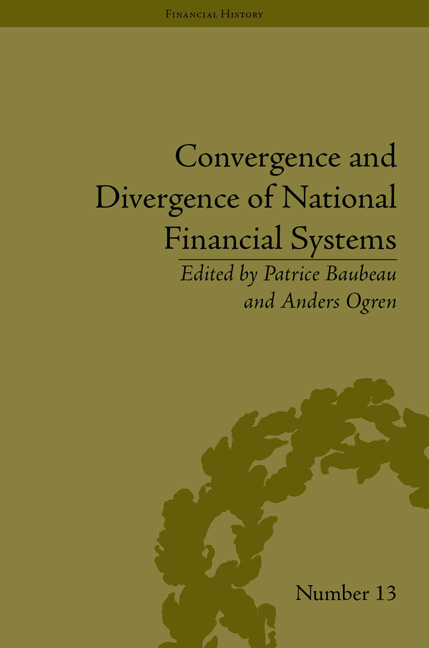 Convergence and Divergence of National Financial Systems
Convergence and Divergence of National Financial Systems Book contents
- Frontmatter
- CONTENTS
- Acknowledgements
- List of Figures
- Introduction
- Part I The Social Mechanisms of Financial Convergence
- Part II National Convergences and Divergences in the Long Term
- Part III Convergence and Historical Shocks
- Part IV Convergence and Monetary Constraint
- 10 The Establishment of the Gold Standard in Southeast Europe: Convergence to a New System or Divergence from an Old One?
- 11 Money Creation under the Gold Standard: The Origins of the Italian Banking Crisis of 1893
- 12 Financing Germany: Amsterdam's Role as an International Financial Centre, 1914–31
- Notes
- Works Cited
- Index
11 - Money Creation under the Gold Standard: The Origins of the Italian Banking Crisis of 1893
from Part IV - Convergence and Monetary Constraint
- Frontmatter
- CONTENTS
- Acknowledgements
- List of Figures
- Introduction
- Part I The Social Mechanisms of Financial Convergence
- Part II National Convergences and Divergences in the Long Term
- Part III Convergence and Historical Shocks
- Part IV Convergence and Monetary Constraint
- 10 The Establishment of the Gold Standard in Southeast Europe: Convergence to a New System or Divergence from an Old One?
- 11 Money Creation under the Gold Standard: The Origins of the Italian Banking Crisis of 1893
- 12 Financing Germany: Amsterdam's Role as an International Financial Centre, 1914–31
- Notes
- Works Cited
- Index
Summary
Introduction
This Italian experience is very interesting from the perspective of analysing divergence and convergence under the Gold Standard (GS). This experience shows the paradox between the common thought on GS (an automatic rule to avoid inflation) and an Italian reality where, in spite of gold convertibility, the economy suffered inflation that ended in an economic crisis.
Common wisdom associates nineteenth-century price stability with the GS rule. This common wisdom is sustained by a change in the perception of the notion of inflation. In fact, price stability does not have the same meaning today as it did in the past.
As a matter of fact, the link between nineteenth-century price stability and GS rules is defined more by the instability of the twentieth century than by its own stability. The Italian case illustrates this point: Italy could participate at the same time in the GS and still experience uncontrolled monetary creation. As such, the GS was not necessarily a set of rules conveying with it the degree of convergence most commonly assumed. Italian monetary difficulties were the direct consequences of the endless financial needs of the government, and no rule was strong enough to reign in the drive for governmental expenditures.
This chapter will show the link between the monetization of the national debt and the destabilization of the Italian banks of issue, and will explain the monetary origins of the 1893 crisis. The main argument rests on the fact that government intervention in the banking industry is one of the major factors of the crisis. The focus on this specific aspect of the crisis does not mean that there was just only one origin of this crisis. Nevertheless the return to the GS did not prevent Italian economy from monetary creation because the government could not meet the commitments of an equilibrate budget. Moreover, the financial commitments of the GS had led the Italian Government to take new measures to prevent a gold flee that worsened the crisis.
- Type
- Chapter
- Information
- Convergence and Divergence of National Financial SystemsEvidence from the Gold Standards, 1871–1971, pp. 197 - 218Publisher: Pickering & ChattoFirst published in: 2014


